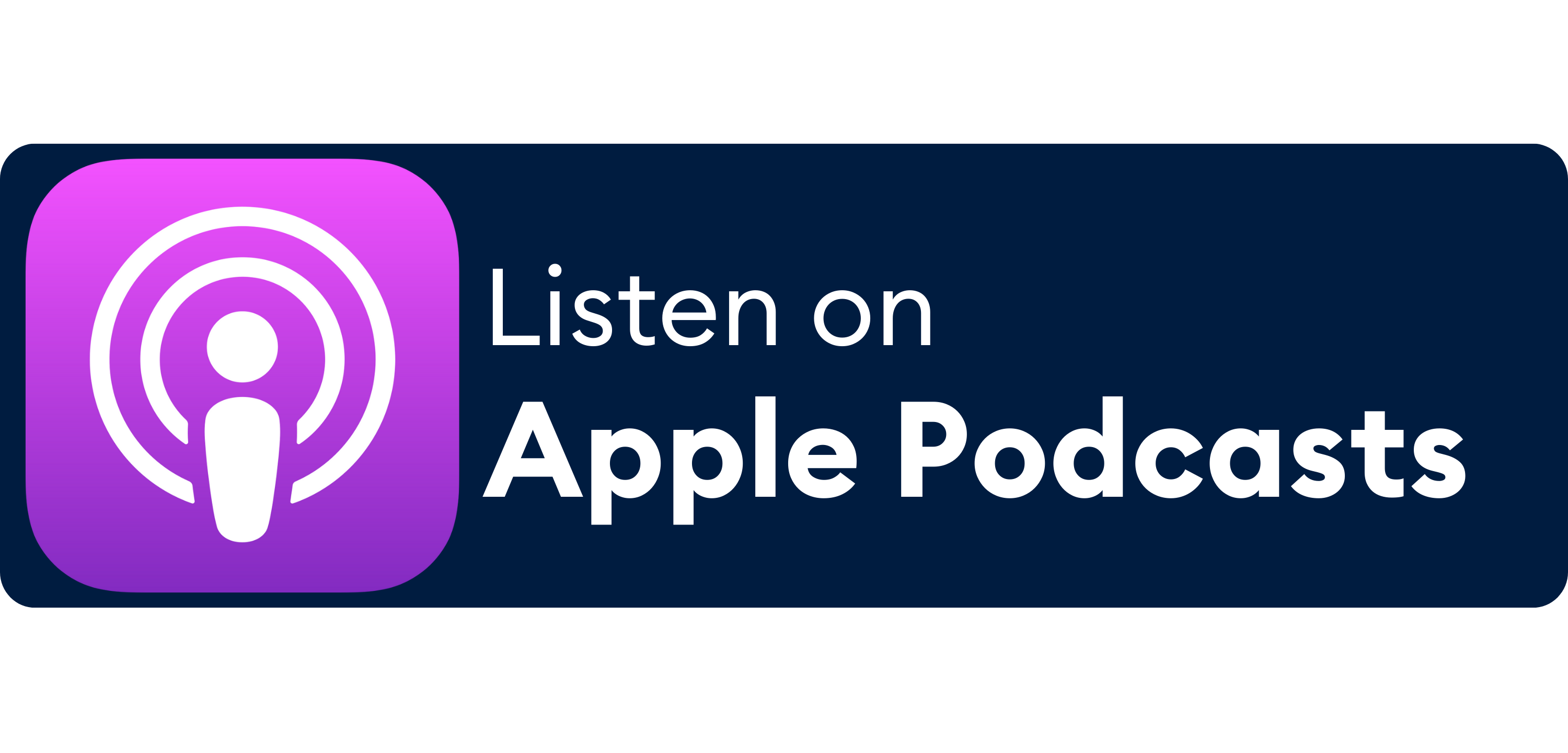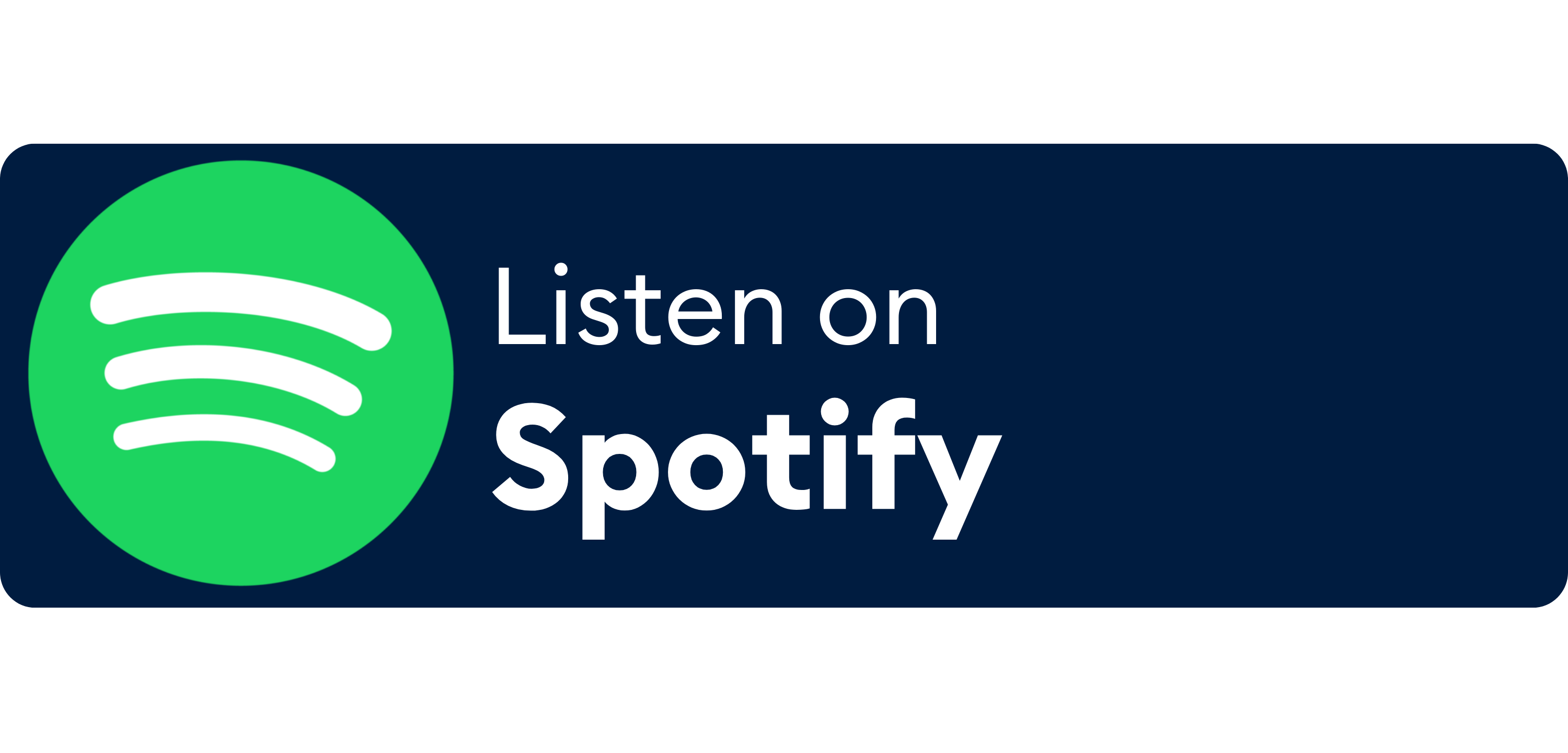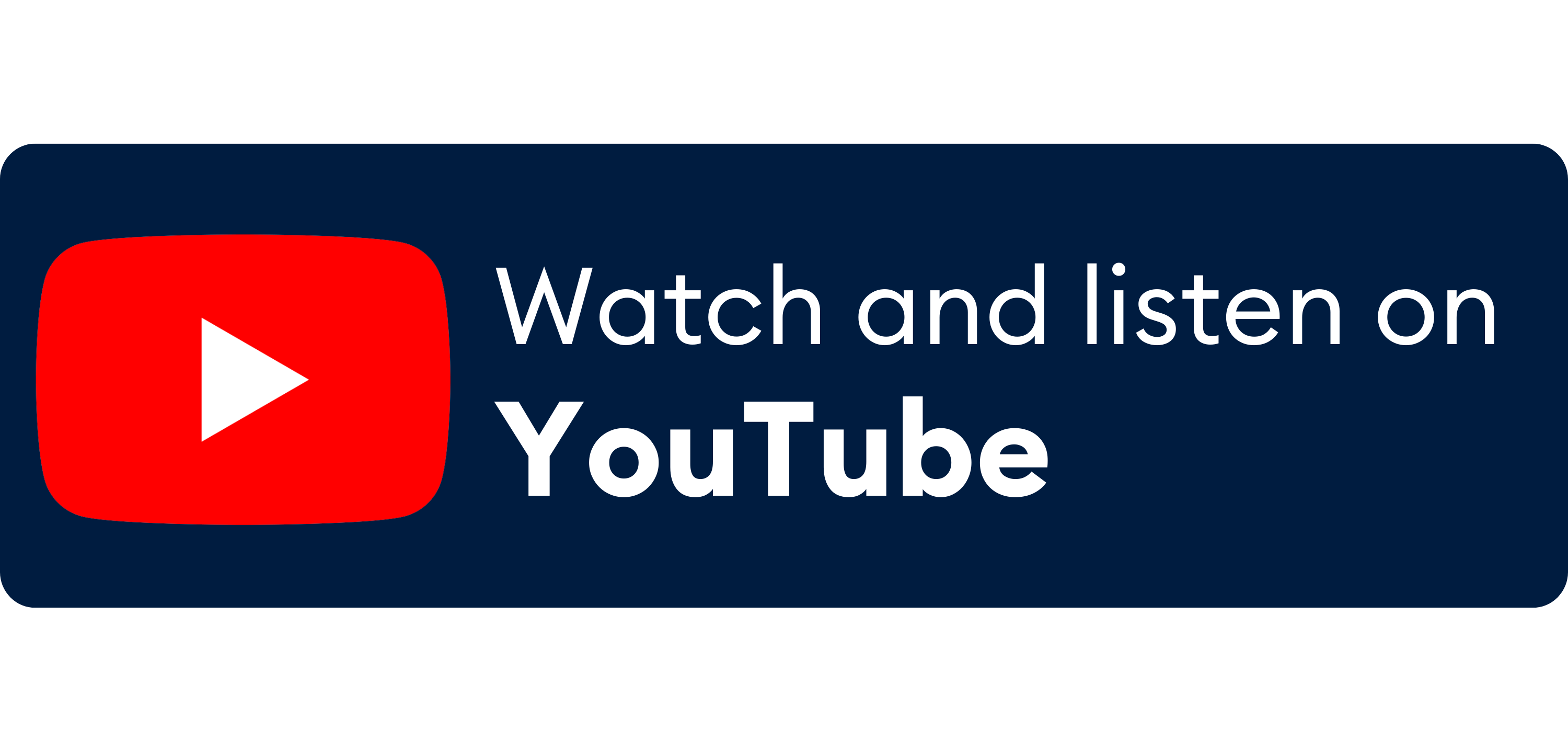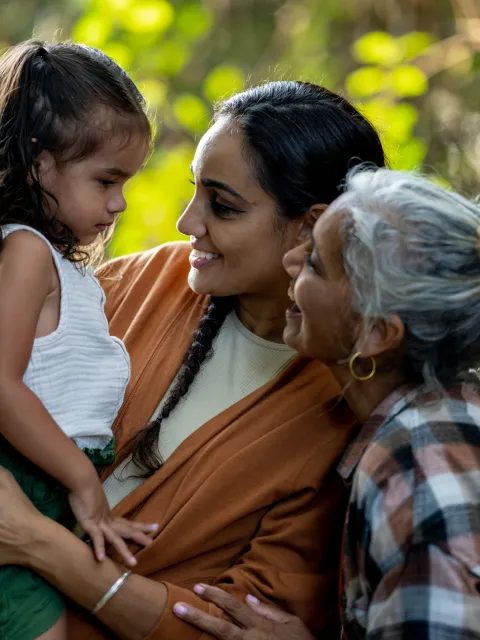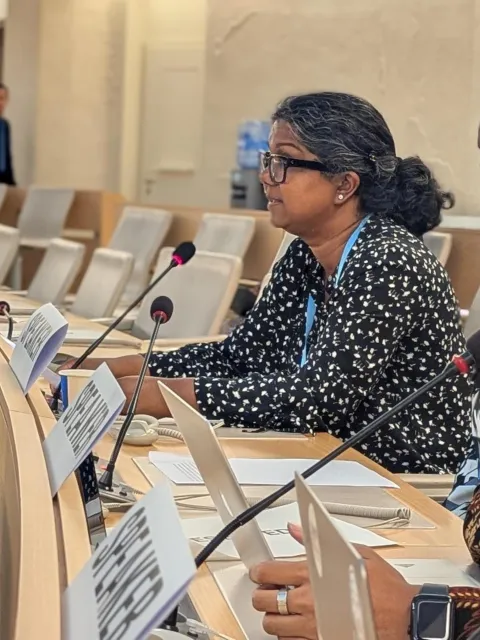Podcast "Let's Talk Cancer": Understanding the latest global trends in cancer control
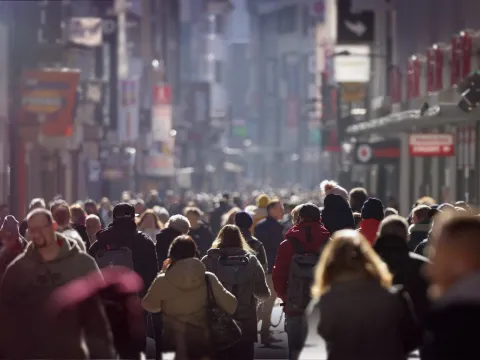
WHO has released new global cancer figures, showing stark inequities in preventing and treating cancer, with rising numbers of cases and cancer-related deaths expected to affect the countries least equipped to cope.
In this episode of "Let's Talk Cancer", Isabelle Soerjomataram, researcher and epidemiologist at the International Agency for Research on Cancer, WHO's cancer branch, analyses and interprets these global cancer trends.
See podcast transcript below
Listen on: Spotify | Stitcher | Apple Podcasts | Amazon Music | Audible | Deezer
Get notified of new podcasts by email
Podcast transcript
Cary Adams: Hello, welcome to Let's Talk Cancer. My name is Cary Adams, and I'm the CEO of the Union for International Cancer Control. Recently, just ahead of World Cancer Day, the International Agency for Research on Cancer, IARC, released new estimates for the number of new cancer cases and cancer related deaths that occurred in 2022, in 185 countries or territories around the world, as well as by cancer type. These statistics are vital for our understanding of the global burden of cancer and guiding public health policies and interventions. These new figures indicate that we are making progress in detecting and treating cancer, as the number of deaths due to cancer has dropped slightly since 2020, and fewer people risk dying from the disease in their lifetime, 1 in 9 in men and 1 in 12 in women in 2022 versus 1 in 8 and 1 in 11 in 2018. However, we are continuing to see a rise in the number of new cases and also a significant disparity between high, middle and low income countries, with the latter accounting for a significant proportion of the number of deaths due to cancer. Many of these preventable and treatable if detected early enough and with access to life saving treatment. With us today to dive into these new estimates and what they mean for cancer control around the world is Isabel Sumatran, researcher and epidemiologist at IARC, whose work primarily focuses on the analysis and interpretation of these global cancer figures. Well, it's great having someone from IARC, so thank you very much. It's an organisation that many of you, I see members around the world and others admire for the great work that you and the team do in Lyon, in France. So let's talk about the new estimates for the future. The number of deaths in cancer and number of cases. So what does the new report tell us?
Isabelle Soerjomataram: So we just released now the new report, the new estimates on global cancer statistics. And then we estimated that about 20 million new cancer cases were diagnosed and 2022 and then about 9.7 million deaths were diagnosed in 2022. Just to make it into a simpler language. So about 1 in 5 person will be diagnosed with the cancer. But then in terms of death, it's a bit less 1 in 9 for men or 1 in 12 will die from the disease.
Cary Adams: Is that a dramatic change since the last time you measured the numbers?
Isabelle Soerjomataram: So usually we don't compare data because then in order to estimate this data, what we do is then we improve the estimates and the data that we use to kind of then estimate the data. But if we're just looking into kind of progress around the world based on data that we have on long Terme, there are good news and bad news. In terms of the good news, cancer deaths are decreasing in a lot of higher income countries or stable. But then the bad news is then the inequity, which is I think resonates a lot to a lot of that. You your work you do in Newark, in lower middle income country, we see much less progress than what we saw in higher income countries.
Cary Adams: And I understand there's been some shifts around with regard to the cancers, which are number one and two in your data, a change from breast cancer being the number one in terms of diagnosed around the world to actually being lung cancer. Now, can you can you explain why that's happened?
Isabelle Soerjomataram: So lung cancer and breast cancer, they are both on the top of the scale. In our newest estimation lung cancer is now on the top. So overall lung cancer is number one in terms of the most diagnosed cancer number. Second is breast and followed by colorectal cancer. And then before previously as you mentioned we saw breast cancer being more important. But then if we're looking at the importance they are not so different. Yeah. So just making it this more into kind of statistical number back again for lung cancer, 12% of all cancers that were diagnosed with lung cancer while then for breast cancer, it's 11.6, which is very close to lung cancer.
Cary Adams: And you mentioned the difference between high income and low and middle income country. This is something which has been well, it's been important for UICC for decades. And one of the reasons why UICC was formed in the first place back in 1933. But over the last three years, we've really highlighted that challenge through World Cancer Day and the, you know, Close the Care Gap campaign. So what are your findings in that respect? I mean, is it is it something that you think is getting worse, or are we making progress in addressing the challenges that we see between high, middle and low income countries and even within countries as well?
Isabelle Soerjomataram: It's true from every aspects of the cancer continuum, even from the cancer data itself. So but just to pick up on one particular example for breast cancer. So this is one of the most common cancer if we are looking into very high income countries, 1 in 12 women will be diagnosed with breast cancer in their lifetime. So if there's a room with 12 women, one of them will be diagnosed with the breast cancer in high income countries. So that's quite a lot. But then if we see how many of women will die from breast cancer in high income countries, you need them to fill a room with 70, 71 women, in a high income countries. And one of them will die from from it. If we compare this then to a lower income setting countries. So 1 in 27 women, so much less in terms of the risk. But then if you see how many of them will die from breast cancer, it's then 1 in 48. So compare 1 in 70 in high income countries to 1 in 48, in low middle income countries dying from breast cancer. And we know the treatment. We know really well how to early diagnose the cancer. We know really well how to treat this cancer. So what UICC have been pointing out in terms of inequity gap in cancer care can be more true today.
Cary Adams: You work very closely with WHO, the World Health Organization. In fact, IARC is part of WHO, and the differences between the two organizations are quite. I mean, you do the data, you do the analysis of the risk factors, and then who conducts no discussions with member states around the world to come up with recommendations and policies. Are you seeing much progress in the, in the in the way in which Member States are taking on those best buys, as they call them? I mean, for example, you look at breast cancer, you just mentioned there there are lots of breast cancer best buys that he recommends, but are they really having an impact?
Isabelle Soerjomataram: There's quite a long list of best buys. And then these are really then interventions that we know work and have been also shown cost effective. There are resources constrained if we're talking about it. But then when building into this and this is also then have been mentioned a lot, it's not only about resources but it's also about political willingness. Then I always think before there is a political willingness. There's the need for awareness. And before that awareness is there. We need data. I think we're better and better in the communicating cancer and the problematic. And I think the awareness are also increasing at the moment. What we need is then really that political willingness. And then I think it's never been before cancer more important in the global agenda. So I think we're almost there. It's just a matter of implementing this. And then no one says that we should implement it all at once. Right? It can be also in a step wise changes.
Cary Adams: You mentioned data, of course. And IARC has been leading on the what they call the GICR programme for many years. And we've supported that as UICC. Data, data, data. We need to know the situation. It is important for a whole host of reasons, not least because of politicians needing to know what's going on in their country. How well are we doing on data collection? Do you feel that we are making progress as well? Because that's critical. If we want to understand what to do next.
Isabelle Soerjomataram: GICR is the Global Initiative on Cancer Registries. And indeed, I think with UICC, since its inception in 2011, which is now 13 years, has always been the partner, our partner in this global collaboration. So it is really then a niche initiative to improve the coverage and the quality of cancer registries around the world that collect this data that we're using to estimate the global statistics. But first, the awareness is increasing. Before we started with several then major global organisations to support this work. Now we have country local leads. We have expert trainers that are then based in a lot of different countries. So we have seen a lot of improvement. But that said, there are still inequities. And then we are not only looking at inequities in cancer care, but we also see inequities in cancer data. Only 1 in 3 global cancer mortality statistics are covered in countries. So 1 in 3 countries globally have high good quality cancer mortality data. And that two that are missing are mainly in low and middle income countries. And without it you really can then build your cancer control plan, increase awareness, etc. etc. so putting then our attention more in low and middle income countries is really key to make a more equitable at the end than cancer care and cancer plan.
Cary Adams: Those numbers help those countries obviously, and also international organizations who want to help like UICC. They also, I guess, go into the engine for you to make your forecasts in the longer terms on where we're going. As the latest set of data changed any of your views about the longer term, and are we still going to see, you know, a significant rise in cancer cases in the next 20 years? What about cancer morbidity as well? Where are you on that?
Isabelle Soerjomataram: I think this is one of the the scariest information that one can imagine because cancer cases, they're not going to go down as well as cancer mortality. We're not looking that there's going to be major decreases in the future. If we're looking then into the future the next 25 years, just based on the data that we have today, we are expecting a rise of over 70%. I mean, this is almost doubling the cancer incidence we have today. So we we see 20 million. And then in the next 25 years in the future. So 2050, we're going to expect 35 million, so 15 million cases more to diagnose, to treat. Imagine then the human resources you need. And not only that. So they're growing. Importantly. And then if we see proportionally that rise, that increase is then largest in low and middle income countries again. So if we're not doing something today to kind of then prevent or then look into, then what's going to happen in the future. We're, we're just going to look into then a big, big, big catastrophic event.
Cary Adams: The drivers for that presumably is mostly population increase and aging. Would that be right?
Isabelle Soerjomataram: So the big driver is population, as you mentioned, and aging. In terms of higher income countries, we're reaching a point where the population ages, but then it's not as fast as, as what we are seeing in low and middle income countries, where then you expect then cancer cases to increase with it.
Cary Adams: How do you assess, for example, the growing obesity burden affecting the numbers going forward or tobacco use, etc..
Isabelle Soerjomataram: Risk factors, they continue to be important and predictor to this rise. Obesity is still increasing. There's not really major changes. If we're seeing then in terms of then the obesity epidemic tobacco, we're doing really a lot on it. But that said, the improvement has been slow and then it causes almost 15% of all cancer in the world. So doing something about those two major, major risk factors can do a lot in terms of reducing future burden.
Cary Adams: And that messaging needs to go down to countries, as well as being a broader message from yourself and links back to what we said about Best buys, because they're all included in the best buys from the World Health Organization, which are, you know, provided to member states around the world. I'm interested in your perspective on low middle income countries because, as you said there, it's 70% of cancer deaths and potentially 70% of the growth in the future. Have you any particular views on what the international community should be doing with regard to that and anything that IARC or who could do to bring, you know, strength of argument to countries to, for example, invest in universal health coverage and to make sure cancer is included in that decision. Any views on that, Isabelle?
Isabelle Soerjomataram: I think one thing then to realise, I can imagine that the view of cancer can be over. I mean, the perspective of cancer can be overwhelming in a country, especially where then they are faced with multiple burden and multiple diseases. But in terms of cancer, I think there's quite a lot of global regional activities and movements with. And then there are also tools to really then do real changes within the countries. I was just going through into your report that you recently published on the In Inequity? Well, then there are I think there are then a list of nine steps that country can do, but there's quite a lot of example and real life examples from each of the regions. So then really context relevant that country can pick up and then do something about it for their own countries and not doing this alone across different governmental institutions, but beyond that civil society. And I think here you have an important role realizing that countries are not alone in this. And then working collaboratively, collaboratively with others are then major steps that country can take moving forward.
Cary Adams: It does feel like a big challenge and a big problem and often very scary to address cancer. But as you quite rightly say, there are baby steps that can be taken on the key risk factors and also on early detection. And of course, early detection leads to cheaper and more effective treatment and care. Often when we're in discussions with governments, they think about cancer as a disease rather than potentially an economic problem or the financial consequences of cancer. The need to invest in health infrastructure, which maybe they don't do if they focused on prevention. Does I ask, do anything in that space on the financial side or any recommendations in that space? And is it included in your, your, your analysis going forward?
Isabelle Soerjomataram: Ao the whole economic and financial costs of cancer has become a major interest of many. So not only Iraq, but Iraq today has really then one group that's now moving forward to try them to estimate the financial costs of cancer. And then the vision in this is not only then to take into account financial costs of cancer. In terms of then direct treatment, chemotherapy, radiotherapy, etc. but cancer has a much more wider impact to the society. Thinking of cancer as a disease, the premature death or earlier death that are caused to cancer reduces productivity. So the whole economic results on that can be really large. And there's also a large burden, for example, in terms of morbidity and then informal care. That's another other sector that is really important for cancer, especially due to then the different phases of disease that patient or someone who are done with cancer are going through. So the financial impact, integrating that and into the whole consideration of different strategies of cancer control is then becoming one of the major area of work of Iraq. Together, together, of course, with all its partners.
Cary Adams: I think it's an area where we probably, as a health sector, need to focus more attention because in my experience, talking to a finance minister is very different. Talking to a health minister, and we know that health ministers many, many times struggle to secure the funding required to invest in cancer treatment and care. And our World Cancer Congress, last time we had it in Geneva, Isabelle and one of your colleagues did a presentation about orphaned children through cancer, loss of the mother, which was quite a striking and emotional number. I can't recall the number exactly, but it it resonated with people. It suddenly became more real that these numbers that we say about people dying, it became a statistic on how many children were orphaned. This is something which, you know, I think we need to get across in our communication about cancer. It's not just that the registry numbers, etc., it's the impact on families. Is there more work being done in that by IARC?
Isabelle Soerjomataram: Yes. So this is then the whole area of work where I'm saying financial cost is one. But then there is then the whole societal impact of cancer. And that's one work that we we continue to work on. So we have now been working on the maternal orphan. So these are the orphan or children who lost their mothers due to cancer. And then there's one million of such orphan mothers today. Again, there's a large inequity lens here because most of these orphaned children are in low and middle income countries from cancers or the death of mother from cancer that are completely preventable breast cancer and cervical cancer. So what we are trying then to do today is then trying to estimate this number for the father as well. So then trying to look into then orphaned paternal orphan and then at the end, then trying to put that together into then one, one aspect then of the societal impact of cancer.
Cary Adams: And I think it's very compelling because we can talk about the forecast numbers of number of cases and number of deaths. But if you add on that, the number of children who are left without a parent, I think that resonates with everyone. No one wants to see a child lose their mother or father.
Isabelle Soerjomataram: It also has a longer term impact on the on the child right and then at the on the family as a whole, because there are studies or research that shown, for example, children who are orphaned, who lost their mother or their father has an long-term impact, for example, in terms of educational achievement. So which are then really important for later life of a society as a whole?
Cary Adams: We hope that some member states or countries will be listening to this podcast, given the importance of knowing the numbers and as you said earlier, the awareness that's needed in order to understand what should be done to address that growing burden around the world. And what's your message to governments around the world with regard to cancer care at the moment and closing that gap, what would you say are the critical things that they need to consider as we approach another two decades of challenge?
Isabelle Soerjomataram: It's difficult to summarise everything into one message, of course, but I think coming back then into the whole inequity lens, our it's never been more clear today that our data, the UICC report, the WHO report, a lot of different studies show there is a gap. And we know also there are tools to do this and everybody can do some things. So there is then kind of clear guidance in terms of what countries can do. But let's as a person as well either then working in IARC or in a UICC, let's try to take that one step that we can do today to. Reduced end of the burden of cancer in general.
Cary Adams: Well, Isabel, that's a great message to end on. World Cancer Day has been premised on that for three years. We will have a new campaign over the next three years coming out soon. I hope that we've had an impact globally about raising awareness of the issue of inequity and calling on governments around the world to take it seriously. The advice that you provide and the information that IARC gives with regard to the numbers is just so important to our community. So I'd just like to say thank you to you and Elisabete and the team there. You really do a great job. So thank you very much.
Isabelle Soerjomataram: Thank you.
Cary Adams: Thank you for listening to Let's Talk Cancer. We hope you enjoyed this episode. Please do send us an email or message on social media if you have any questions or comments. See you next time.
Last update
Monday 26 February 2024